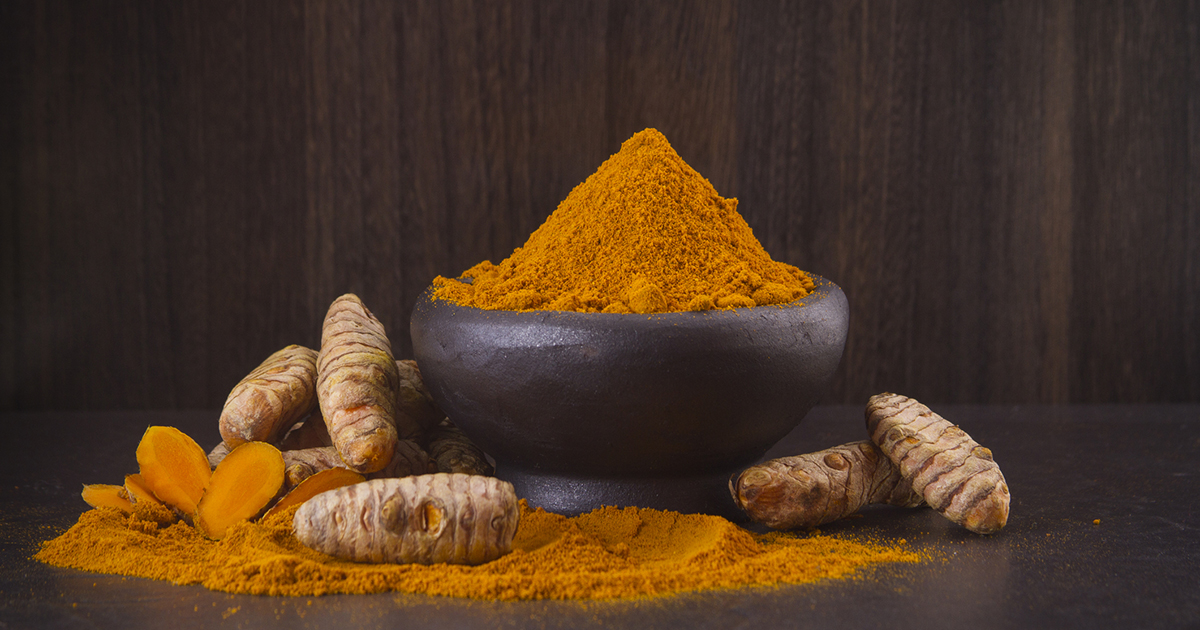Health Benefits Of Turmeric
Turmeric is a popular spice commonly found in curry and Asian food. It comes from the turmeric plant and is used to flavor mustards, butter, powders, and cheeses. The root of the turmeric plant contains curcumin, which is used to make medicine and cosmetics. Scientists believe it can ease symptoms of depression and help antidepressants work better. There are several compounds in turmeric that support your health. This powerful antioxidant can be taken in capsule, powder, or liquid form. Some individuals apply turmeric directly onto the skin to treat sprains, ringworm, acne, and infected wounds. Find out how this superfood can treat and heal your health concerns.
Has Anti-Inflammatory Properties

Curcumin and other chemicals in turmeric have anti-inflammatory properties known to decrease inflammation. Researchers believe these compounds are the most effective anti-inflammatories in the world. Inflammation is at the root of most diseases including cancer, ulcerative colitis, and chronic pain. Turmeric is used to relieve symptoms of heartburn, arthritis, joint pain, kidney problems, osteoarthritis, irritable bowel syndrome, and chronic inflammation. It can speed up wound healing, decrease acne, and control psoriasis flares. Corticosteroids for patients with ulcerative colitis or Crohn's disease can damage the intestinal lining making their conditions worse. Supplementing with turmeric instead will not produce these harmful side effects and supports the growth of good bacteria.
Continue for the next major health benefit of turmeric.
Relieves Indigestion

Turmeric has been used for thousands of years to treat digestive issues. Many scientists believe this natural remedy relieves indigestion, acid reflux, and gastroesophageal reflux disease (GERD) symptoms. Studies show both conditions are caused by oxidative stress and inflammation. The anti-inflammatory effects of curcumin can prevent esophageal inflammation, and the alcohol extract of turmeric has anti-ulcer properties that increase gastric mucus protecting the lining of the stomach. Turmeric stems can be dried and ground into a powder to relieve indigestion. It can then be added to your beverages or when cooking. Organic turmeric extract supplements will ensure you are getting the necessary medicinal amounts.
Keep going for more health benefits of turmeric.
Improves Liver Function

Diabetes and obesity are two major health threats that increase your chances of developing a fatty liver. Studies have shown the polyphenols in curcumin are helpful in reducing your risk of fatty liver by decreasing stress at the cellular level. This type of stress causes physiological changes in liver health among other organs in humans. Physiological stress and excess consumption of refined sugars both contribute to the development of fatty liver. Turmeric protects the liver from damage caused by alcohol, free radicals, toxins, and supports detoxification. It reduces inflammation in the liver by clearing out excess cholesterol further improves liver function.
Continue for more information on the benefits of turmeric.
May Prevent Cancer

While research is ongoing, studies suggest turmeric can help treat or may prevent cancer. It's being explored as a treatment for cancer because it is believed inflammation plays a role in the disease. Laboratory research on animals has shown success at turmeric slowing the spread of cancer and protecting healthy cells from radiation damage. Clinical trials are underway to see precisely how effective curcumin is in treating patients with precancerous conditions and as a remedy for symptoms caused by cancer treatments. In 2007, scientists used chemotherapy along with turmeric to treat bowel cancer and showed that turmeric killed more cancer cells than when using chemotherapy alone.
Continue for more healthy effects of turmeric.
May Prevent Alzheimer's Disease

Turmeric is also known to contain anti-amyloid properties that are vital in treating and may also prevent Alzheimer's disease. Curcumin breaks up amyloid-beta plaques that impair brain function and are associated with Alzheimer's. Turmeric also contains a chemical called turmerone, which is known to stimulate stem cells to create new brain cells. This, in theory, can help with neurodegenerative conditions including Alzheimer's disease. Curcumin decreases oxidative stress and inflammation, which are two factors that contribute to developing Alzheimer's disease. There is some evidence that suggests turmeric can prevent the breakdown of nerve cells in the brain.
